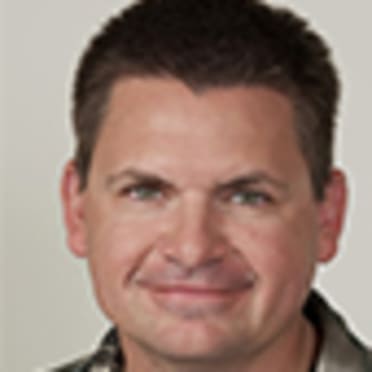Here is Brian McTaggart’s ranking of the top shortstops in Astros history:
1. Carlos Correa, 2015-21, '25-present
Key fact: Astros' career leader in homers, RBIs and OPS at shortstop
While injuries have slowed his career arc, Correa has established himself as the greatest shortstop to wear an Astros uniform. The No. 1 overall pick in the 2012 Draft, Correa reached the Majors in 2015 and won the AL Rookie of the Year Award. He represented the Astros twice at the All-Star Game and is the club’s career leader and single-season leader in home runs by a shortstop. He finished fifth in AL MVP voting and won the Platinum Glove for defense in ’21 -- the season before he signed with the Twins.
Correa had an .849 OPS, 18 homers and 59 RBIs in 79 postseason games with the Astros and was a cornerstone player on the team that win the 2017 World Series. The Astros brought him back for a second stint in Houston at the Trade Deadline in ’25, this time to play third base.
2. Jeremy Peña, 2022-present
Key fact: Won World Series MVP and Gold Glove as a rookie in ’22
Peña had the unenviable task of replacing Correa as the team's starting shortstop, but he couldn't have handled it any better. As a rookie, he slashed .253/.289/.426 with 22 homers and 63 RBIs and had an incredible postseason run. His 18th-inning homer won the clinching Game 3 of the ALDS against the Mariners, and he was named MVP of both the ALCS against the Yankees and World Series against the Phillies.
Peña became an All-Star for the first time in ’25, slashing .304/.363/.477 with 17 homers, 62 RBIs and 20 stolen baes in 125 games. He was named the club's MVP and finished 10th in AL MVP voting.
3. Dickie Thon, 1981-87
Key fact: Ranks third among Astros shortstops with 16.0 bWAR
Thon was a blossoming star when his career was derailed in the first week of the 1984 season. Coming off a terrific ’83 season in which he hit .286 with 20 homers, nine triples, 79 RBIs and 34 steals and made the National League All-Star team, Thon was struck in the left temple by a Mike Torrez fastball on April 8, 1984, ending his season and threatening his career.
The pitch broke the orbital bone around his eye and ended his season, altering his career forever. Thon returned to the field a year later, but he had ongoing problems with depth perception and never was the same despite playing nine more seasons. He retired following the 1993 season with 1,176 hits in his 15-year career.
“Dickie was probably going to be a Hall of Fame player,” teammate Enos Cabell said. “He knew how to play. Dickie became a really good ballplayer even after the head injury.”
4. Adam Everett, 2001-07
Key fact: 110 Defensive Runs Saved are the most by an Astros shortstop since the stat was first tracked in 2002
If we’re going by defense alone, there was no Astros player who’s been better than Everett. His 13.8 dWAR with the Astros is the highest of any player in club history at any position. Everett posted a 7.4 defensive WAR from 2006-07, the highest two-season total by any shortstop in club history.
Everett, acquired from the Red Sox in a trade for Carl Everett in December 1999, was the club’s starting shortstop from 2003-06, appearing in 152 games as the Astros went on to make their first trip to the World Series in ‘05. He often took a bad rap for his lack of offense. He slashed .248/.299/.357 during his seven seasons in Houston with 35 homers, but he was in a deep and talented lineup and brought Gold Glove-caliber defense to a crucial position.
5. Craig Reynolds, 1979-89
Key fact: 265 RBIs at shortstop are second to only Correa (485) in Astros history
A native Houstonian who was traded from the Mariners following the 1978 season for Floyd Banister, Reynolds slashed .252/.286/.345 in 11 seasons with the Astros, was an All-Star in ’79 and started on NL West-winning clubs in 1980 and '86.
Honorable mentions
Denis Menke (1968-71, ’74) spent only two years as the Astros’ starting shortstop, in 1969 and ’70, and made the All-Star team both times. He received NL MVP Award votes in ’69 -- a season in which he slashed .269/.369/.387 with 13 homers and 92 RBIs. Menke moved to primarily first base in 1971 and was traded along with Joe Morgan and others to the Reds following that season. He returned to Houston to finish his career in ’74.
Marwin Gonzalez (2012-18) played all over the field during his seven seasons with the Astros, but he started more games at shortstop (249) than he did at any other position, often filling in when Correa was out with an injury. He received some American League MVP Award votes in '17 in one of the best utility seasons by a player in club history (.907 OPS), which included 33 starts at shortstop.
Roger Metzger (1971-78) was the first shortstop in club history to win a Gold Glove, achieving that feat in ’73 when he led the National League in triples (club-record 14) and was named the team's Most Valuable Player.
Miguel Tejada (2008-09), a former AL MVP, continued to produce over two seasons in Houston. He made two NL All-Star teams and led the team in batting average (.313) and hits (199) in ’09.


